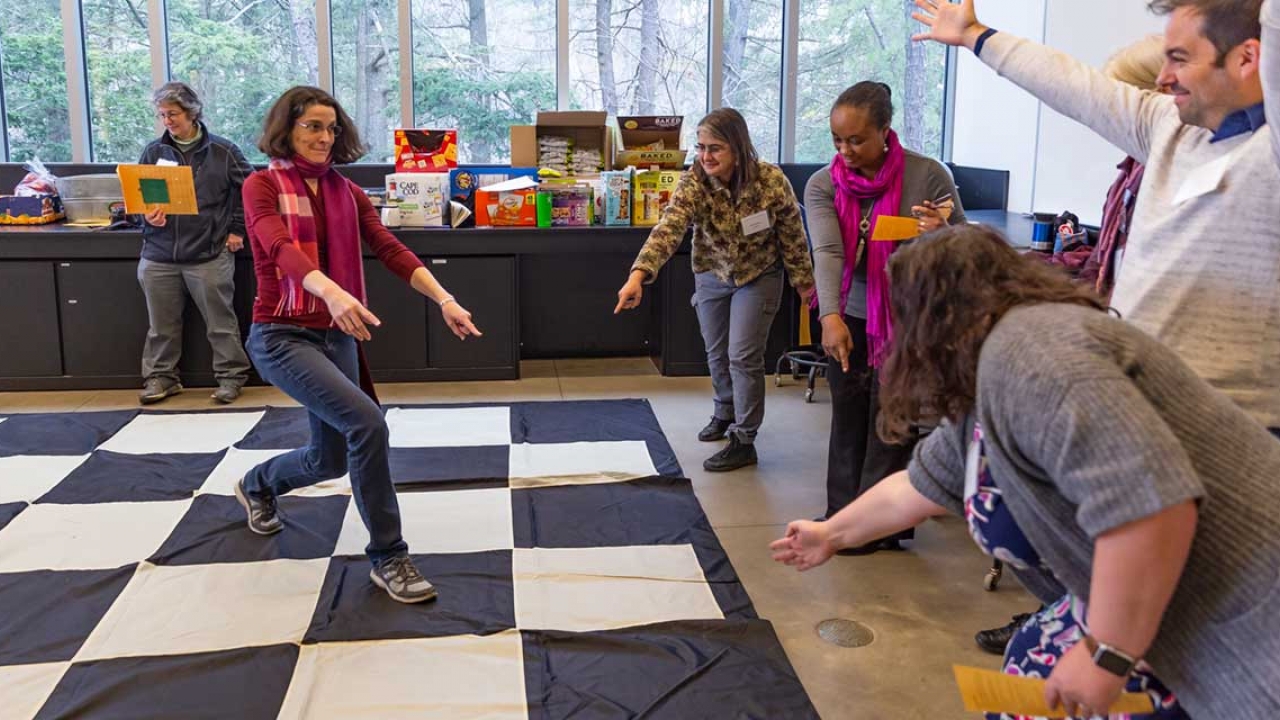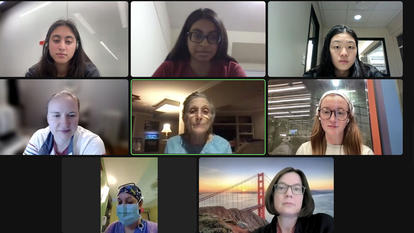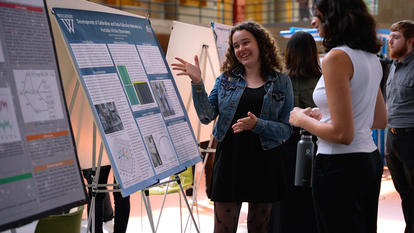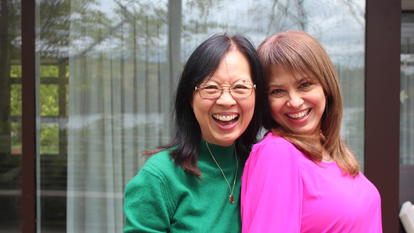Wellesley Faculty Practice Teamwork at Science Education Retreat for Inclusive Excellence

Using part of a $1 million grant from the Howard Hughes Medical Institute (HHMI) to promote inclusive excellence, Wellesley launched a faculty retreat focusing on science education from January 14-18 inside the Whitin Observatory .
To cap off a week of intensive group work around inclusion, a highlight of the retreat was an activity called the Community Maze, in which the 28 participating faculty members were divided into two groups that had to move across a checkerboard maze.
“The objective was for each team to navigate through the grid, avoiding various obstacles and pitfalls and finding the right path collaboratively to get the entire team to the other side,” said Megan Nuñéz, the Nan Walsh Schow ’54 and Howard B. Schow Professor in the Physical and Natural Sciences and professor of chemistry. The task required coordination, improvisation, and clear communication—but no speaking was allowed, only hand signals.
Sohie Lee, senior instructor in computer science laboratory, said the maze activity gave her a new classroom perspective. At one point, she said, she used a hand signal to direct a teammate across the grid: “I assumed that my hand signal for ‘move diagonally forward’ was universally understood. Turns out, it was not. This made me realize that this probably happens in my classroom. I assume that something I say is understood by all the students in the room, when in reality, it may not be, and there may not be an opportunity to ask for clarification.”
The purpose of the retreat, and of the other activities the five-year grant will fund, is to promote inclusion by helping faculty to redesign learning spaces to engage and support all students, said Nuñéz, the primary director of the grant.
Ann Trenk, professor of mathematics, said the maze exercise “demonstrated one of the key principles of inclusive excellence: Everyone has expertise to contribute, everyone has something to learn.”
Nuñéz described the personal transformation she and others hope to make as a result of participating in the HHMI activities. “Once you start to look at the world through others’ experiences and you see the people around you for who they are inside, you really can’t turn that off and go back to the way you were before,” she said.
A team from the Science Museum of Minnesota, which helps elementary school and university faculty create inclusive environments, particularly in STEM education, led the retreat. The next one is scheduled for May.
Photo: Faculty members including Megan Nuñéz (second from left) participate in a Community Maze activity.



